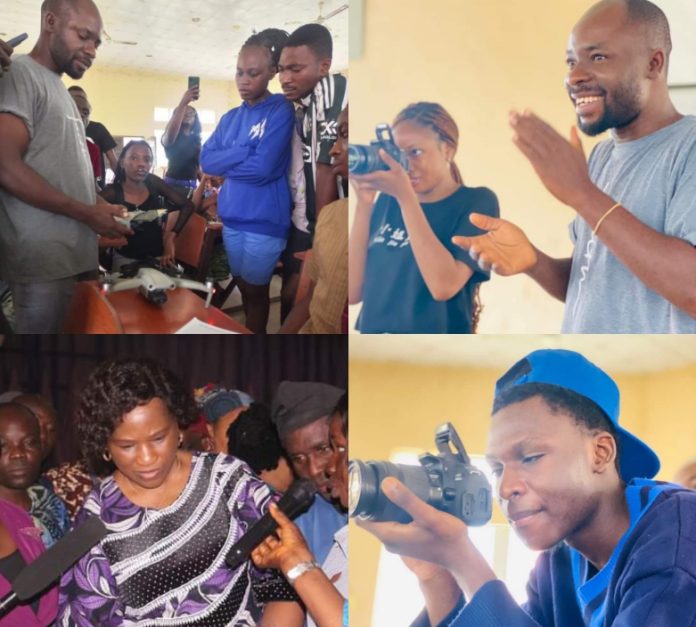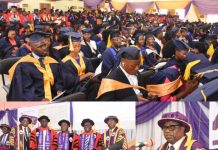
By Olusegun Hakeem Adebumiti, Akure.
Lifemore Academy has recently conducted training on skills acquisition and entrepreneurship development for students of the Federal University of Technology Akure (FUTA).
The training which includes photography, videography, drone usage, web development, etc., was conducted for 300 level students of the Akure-based institution.
In a chat with Precision Online Newspaper, Mr Babatunde Ayodeji Inspiration, President of Lifemore Academy, said the initiative represents a significant step towards empowering university students with practical skills and entrepreneurial knowledge.
“The initiative is designed to bridge the gap between academic education and the demand for practical, marketable skills in the rapidly changing economy. This partnership with FUTA aims to equip students with the tools to succeed not only in their chosen fields but also in the broader economic landscape, fostering innovation, creativity, and self-sufficiency.
“The training covers a range of technical skills, including Information Technology (programming, web development, graphic design), digital marketing, and other hands-on fields like automobile repair, fashion design, and carpentry.
“Lifemore provides training on craft-making, tailoring, baking, and other vocational skills, allowing students to diversify their income streams and reduce reliance on white-collar jobs,” he said.
According to him, the partnership between Lifemore and FUTA to train its students had been on in the last four years.
He said the training has also afforded the students the knowledge on how to develop business plans, secure funding, and understand market dynamics.
“Lifemore and FUTA focus on teaching students how to start, manage, and scale small businesses. Students are paired with experienced entrepreneurs who provide guidance and support throughout the entrepreneurial journey.
“The collaboration also includes pitch competitions where students present their business ideas for possible funding and incubation,” he noted.
The Lifemore President admitted that the training has brought about increased employability, entrepreneurship ventures, enhanced creativity and problem solving and financial independence for the trainees.
He, however identified some of the challenges faced during the training sessions to include; limited resources, balancing academics and training, funding for startups.
“Although students are given tools to develop businesses, access to sufficient funding for startup ventures remains a hurdle for many,” he said.
On his recommendations, Mr Ayodeji Inspiration emphasized the need for more resources to be allocated to the training to ensure more students can benefit from the program.
“Providing long-term mentorship and financial support to student startups will ensure sustainable business growth. Also, there is the need for integrating the skill acquisition and entrepreneurship training into the university’s curriculum to ensure every student benefits from the initiative.”
Some of the participants who spoke on the sidelines of the training, identified the impacting nature of the training, adding that they have been exposed to the brighter side of life.















